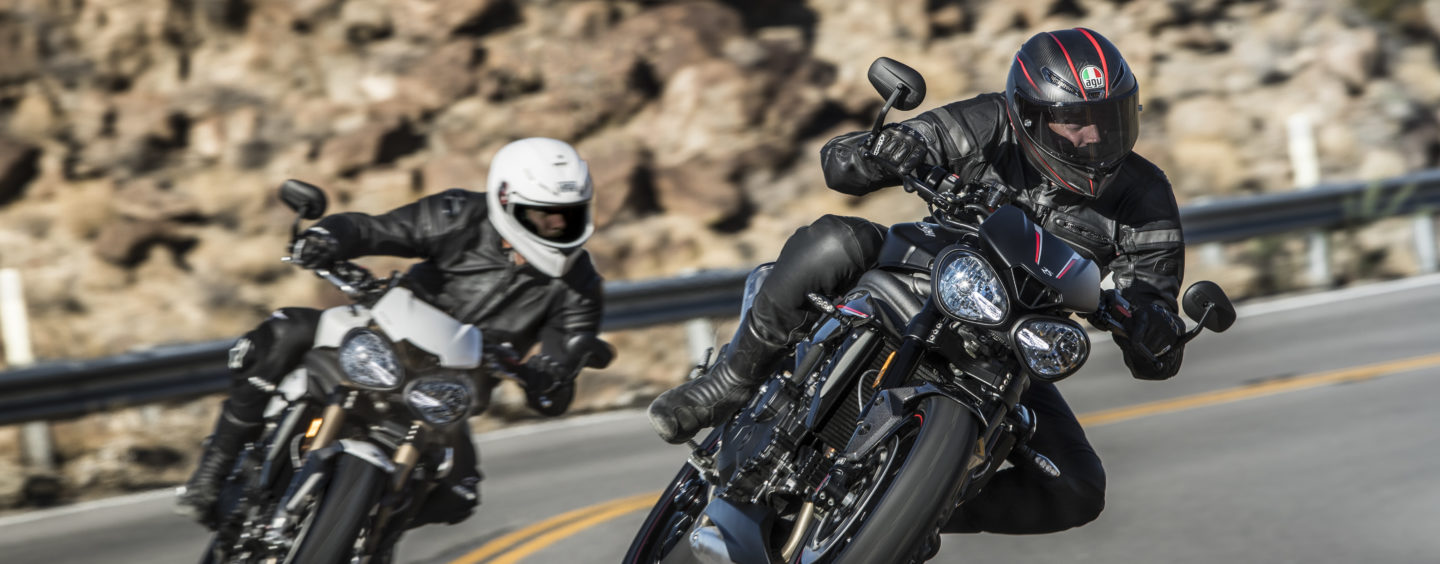
Triumph motorcycles engineers the complete riding experience
by Yokogawa Test&Measurement Editorial Team February 18, 2021A complete riding experience
65,000 bikes a year. That’s how many Triumph produces annually as the largest British motorcycle manufacturer. With a 100 year history of producing category defining motorcycles to racing icons Triumph is one of the world’s best known motorcycle brands. Triumph conceives, designs, tests and manufactures their bikes at at its Hinckley factory in Leicestershire. Whether in Roadsters, Adventure, Racing or Modern Classics, every Triumph motorcycle is precision-engineered from initial sketch to final assembly to deliver a complete riding experience.
Put to the test
Triumph tests each model at every stage of development to ensure functionality, durability, reliability and performance of engines, chassis and electrical systems. Among the tests involved are : tune development, engine endurance, engine performance, handling, suspension, electrical systems, NVH, stress / strain, cooling, lubrication, ergonomics, mileage, high speed track work, paved and off-road testing, braking systems, tests to ensure adherence to internal and external standards for safety and emissions and many more.
Precision Engineering
By analysing individual components, systems, and subsystems individually and in combination, engineers at Triumph were able to make informed decision across the development cycle to achieve maximum quality and performance for riders. With a thorough analysis of the charging system, the power train and components of the extended motorcycle system, Triumph was able to extract exceptional performance from their engines. Triumph engines are put through rigorous tests, far harsher than real world conditions to ensure higher performance and efficiency of the motorcycle powertrain. During these tests, Triumph engineers measure and analyze a vast array of DC,AC and electromechanical parameters under varying conditions and durations, from sensors configured on the bike.
Getting there
“Our team deals with pre-production and development performance testing” This uses a set of internal specifications for optimizing performance across the entire bike. Only when the required performance is reached and the development process is complete, do bikes move to volume production.During design and development, multiple test bikes are built and used for engine and chassis testing to validate component design.Having previously used DL750 ScopeCorder for custom electro-mechanical and dynamic testing, Triumph now needed a better way to conduct dynamic tests on the road. “Since we needed to perform tests that involved measuring signals and sensors from all locations of a bike we needed a portable measurement solution with a modular architecture and the flexibility to evaluate various parameters using high bandwidth, sampling rates and time periods. The DL850 range gives us the flexibility to achieve all of this and the DL350 range gives the added benefit of being bike mountable for use with our dynamic tests”
Check out the case study to learn more.


No Comments so far
Jump into a conversationNo Comments Yet!
You can be the one to start a conversation.